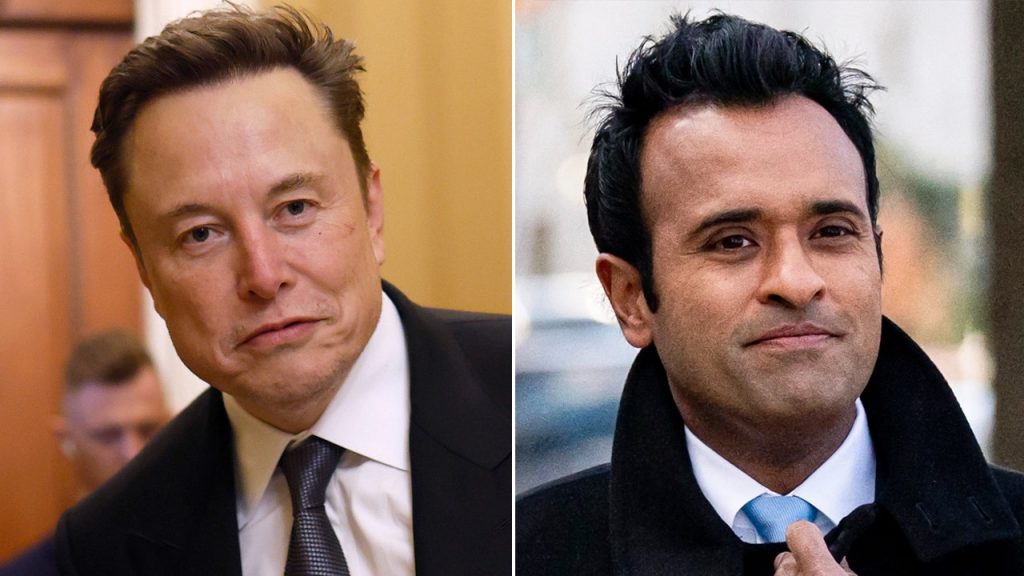The appointment of Elon Musk and Vivek Ramaswamy to lead the Department of Government Efficiency (DOGE) under a second Trump administration has sparked a fiery debate within the MAGA movement, specifically regarding immigration policy for high-skill workers. The duo, whose conservative influence surged during the 2024 election cycle, have proposed increasing immigration visas for highly skilled workers, a stance that contradicts Trump’s previous immigration restrictions and resonates poorly with his core base who prioritize American labor. This intra-MAGA conflict lays bare a fundamental tension between the party’s traditional focus on restricting immigration and the evolving needs of a technologically driven economy.
Musk and Ramaswamy contend that the American education system has failed to adequately prioritize and cultivate high-level engineering talent, creating a shortage that necessitates attracting skilled workers from abroad. They argue that this influx of talent is crucial for the continued success of American tech companies, including Musk’s own SpaceX and Tesla. Musk, using a sports analogy, emphasizes the need to recruit the “best talent” regardless of origin to ensure the “team” wins. Ramaswamy, whose family immigrated from India, echoes this sentiment and criticizes American culture for allegedly prioritizing mediocrity over excellence in education, claiming this has hampered the development of a robust pool of domestic engineers.
This perspective has sparked immediate backlash from prominent conservative voices who accuse Musk and Ramaswamy of undermining the American worker and betraying Trump’s promises to prioritize domestic labor. Figures like Ann Coulter, Laura Loomer, Matt Gaetz, and even Nikki Haley have publicly denounced the proposal. Haley, who vied with Ramaswamy for the Republican presidential nomination in 2024, stresses the importance of investing in and prioritizing American workers, highlighting the irony of seeking foreign labor while simultaneously experiencing high levels of illegal immigration. Gaetz criticizes the tech entrepreneurs for overstepping their bounds, arguing they were welcomed into the conservative fold for economic reasons, not to reshape immigration policy.
Loomer’s response takes a more nativist approach, attributing America’s success to “white Europeans” and rejecting the need for “third-world invaders.” Her comments exemplify the more extreme end of the anti-immigration sentiment within the MAGA base, highlighting the racial undertones present in this debate. This deep-seated resistance to immigration stems from a belief that foreign workers displace American citizens and depress wages, a concern that resonates strongly with Trump’s base who often feel left behind by globalization and technological advancements.
The controversy was further fueled by Trump’s nomination of Sriram Krishnan as his AI policy advisor. Krishnan, who has previously advocated for increasing the cap on green cards, faced similar criticism and anti-Indian sentiment. This appointment underscores the challenge Trump faces in reconciling the demands of a technologically advancing economy with the deeply rooted anti-immigration sentiment that characterizes a significant portion of his base. The appointment also suggests a potential shift in Trump’s stance on immigration, or at least a willingness to consider alternative perspectives, which has further alienated some of his more hardline supporters.
The clash between Musk and Ramaswamy on one side and figures like Coulter, Loomer, Gaetz, and Haley on the other exposes a significant rift within the Republican Party and the MAGA movement. It highlights the complex and often conflicting priorities within the party – balancing economic competitiveness with nationalistic sentiments and traditional values. This internal battle also raises questions about the future direction of the Republican Party and its stance on immigration under a potential second Trump administration. Will Trump revert to his previous hardline stance or adopt a more nuanced approach to immigration policy that acknowledges the needs of a rapidly evolving economy? This internal struggle will undoubtedly shape the party’s platform and influence the political landscape in the coming years.

